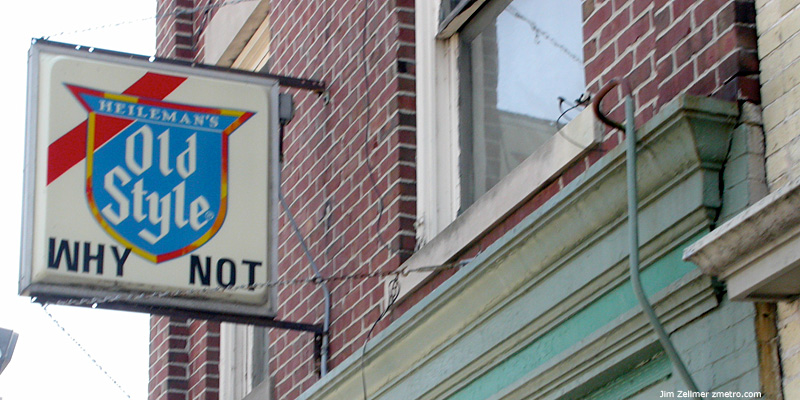OAKS Candy Corner in Oshkosh is a chocolate mirage.
Its gingerbread exterior yields to an interior that in winter is as sugary warm as the inside of a circus peanut and in summer is as refreshing as a wax Coke bottle. It smells like caramel corn and cocoa butter rubbed into the floorboards with a pair of Red Wing boots. It’s the shop just around the corner in an unremittingly blue-collar part of an unremittingly blue-collar town. It shouldn’t still be there, but there it is.
If Oaks Candy is a mirage, then the Hughes Homaid Chocolate Shop, less than half a mile away, is a figment of Wisconsin’s imagination. An 80-year-old bungalow two blocks from Lake Winnebago, it has only a small neon sign to state its trade and a full-blown candy-making operation in its basement.
But Oshkosh isn’t the only caretaker of these unlikely sweet dreams. There’s Beerntsen’s in Manitowoc, with its plate lunches and ice cream sodas; Wilmar Chocolates in Appleton, with its old-time awnings and row of state-fair prizes on the south wall; Kaap’s in Green Bay, with its jar of jawbreakers on the counter; Seroogy’s in De Pere, with its magical whipped-chocolate-filled “meltaways”; and more, much more.
Back to Reality: Sunrise After Madison’s Big Snowstorm

After pondering summer with a few photos, we’re back to reality blowing snow this morning. I think this photo captures our existence rather well, at the moment. Note the snow depth next to my snowblower’s intake. 13.3″ according to Channel3000.
The streets I drove were in good shape early today.
Thinking of Summer: Antibes
 This image of a woman jumping from a rocky cliff into the Mediterranean was taken from a “people’s beach” adjacent to the Hotel du Cap [Clusty search]. A useful image as we Madisonians face another snow shoveling event. Clusty search: Antibes.
This image of a woman jumping from a rocky cliff into the Mediterranean was taken from a “people’s beach” adjacent to the Hotel du Cap [Clusty search]. A useful image as we Madisonians face another snow shoveling event. Clusty search: Antibes.
satellite view
Riding That Train, A Long Commute
At 6 on a Wednesday morning, Jim Bourgart is already 15 minutes into a 175-minute commute by foot, bus, train and foot again. From downtown San Francisco he’ll catch an Amtrak motor coach to the Emeryville station, where he’ll sit 20 minutes on a hard plastic bench waiting for the 6:40 to Sacramento.
He doesn’t mind as long as he is moving. It is the lost sleep time in the waiting room that hurts. Since the Capitol Corridor runs both the bus and the train, you’d think it could tighten the time-cushion allowed for traffic that never appears on the eastbound bridge.
“I could use those extra 20 minutes, or even 10 or 5,” says Bourgart, who starts his day with a 12-minute walk in the dark from his SoMa condo to the bus stop at the Market Street entrance to Bloomingdale’s. “Every minute counts, especially in the morning.”
The Capitol Corridor is a line made possible by the voters, who in 1990 approved Prop. 116 to provide state funding for intercity passenger rail service. Until 1998, there were only four trains each direction per day and the morning commute was essentially westbound only. Now there are 16 roundtrips. The State of California owns the rolling stock, Union Pacific owns the tracks, BART supplies administration, Amtrak staffs the trains and stations and a joint powers authority oversees it. The Capitol Corridor is like Caltrain with more layers of agencies.
Fixing US broadband: $100 billion for fiber to every home
The US is in desperate need of 100Mbps “big broadband.” That’s the conclusion of a new report from EDUCAUSE (PDF), a group that represents IT managers at over 2,200 colleges and universities. But these 100Mbps connections are coming slowly; in the meantime, countries like Japan already have them. To avoid falling further behind, the report calls for a national broadband policy to be passed this year, one that includes $100 billion for a fiber-to-the-home infrastructure that will connect every household and business in the country.
The report opens by citing the familiar, dreary facts: US broadband might now be widely available, but it’s slow and relatively expensive. Between 1999 and 2006, the US fell from third place to 20th in the International Telecommunications Union’s broadband usage measurements. When it comes to average connection speeds, the US isn’t beaten just by Japan but also by France, Korea, Sweden, New Zealand, Italy, Finland, Portugal, Australia, Norway, Luxembourg, the United Kingdom, and Germany. And it’s not about population size or density, either; Finland, Sweden, and Canada beat us on most broadband metrics despite having lower population density. Finally, we’re getting beat on price, coming in 18th worldwide when it comes to cost per megabyte.
Eureka! It Really Takes Years of Hard Work
WE’VE all heard the tales of the apple falling on Newton’s head and Archimedes leaping naked from his bath shrieking “Eureka!” Many of us have even heard that eBay was created by a guy who realized that he could help his fiancée sell Pez dispensers online.
The fact that all three of these epiphany stories are pure fiction stops us short. As humans, we want to believe that creativity and innovation come in flashes of pure brilliance, with great thunderclaps and echoing ahas. Innovators and other creative types, we believe, stand apart from the crowd, wielding secrets and magical talents beyond the rest of us.
Balderdash. Epiphany has little to do with either creativity or innovation. Instead, innovation is a slow process of accretion, building small insight upon interesting fact upon tried-and-true process. Just as an oyster wraps layer upon layer of nacre atop an offending piece of sand, ultimately yielding a pearl, innovation percolates within hard work over time.
“The most useful way to think of epiphany is as an occasional bonus of working on tough problems,” explains Scott Berkun in his 2007 book, “The Myths of Innovation.” “Most innovations come without epiphanies, and when powerful moments do happen, little knowledge is granted for how to find the next one. To focus on the magic moments is to miss the point. The goal isn’t the magic moment: it’s the end result of a useful innovation.”
Why Not?
 Classic Old Style beer sign with an appropriate tavern name.
Classic Old Style beer sign with an appropriate tavern name.
Thinking of Summer: Aix-en-Provence
 Thoughts of summer as Winter continues in Madison. Note the fashionable sushi delivery vehicle, a Smart Car and the smartly dressed pedestrian. Summer in Provence. Much more on Aix-en-Provence here [map]
Thoughts of summer as Winter continues in Madison. Note the fashionable sushi delivery vehicle, a Smart Car and the smartly dressed pedestrian. Summer in Provence. Much more on Aix-en-Provence here [map]
Technology’s Unintended Consequences
As GPS transceivers become common accessories in cars, the benefits have been manifold. Millions of us have been relieved of the nuisance of getting lost or, even worse, the shame of having to ask a passerby for directions.
But, as with all popular technologies, those dashboard maps are having some unintended consequences. In many cases, the shortest route between two points turns out to run through once-quiet neighborhoods and formerly out-of-the-way hamlets.
Scores of villages have been overrun by cars and lorries whose drivers robotically follow the instructions dispensed by their satellite navigation systems. The International Herald Tribune reports that the parish council of Barrow Gurney has even requested, fruitlessly, that the town be erased from the maps used by the makers of navigation devices.
A research group in the Netherlands last month issued a study documenting the phenomenon and the resulting risk of accidents. It went so far as to say that GPS systems can turn drivers into “kid killers.”
Carr makes an excellent point. One has to add some common sense to navigation systems. I used a TomTom in Europe last year. I found it very helpful – mostly, however, when we decided to wander around. The navigation system would then provide a route back to the hotel (which I had added as a predefined point prior to our departure).
Security vs. Privacy
If there’s a debate that sums up post-9/11 politics, it’s security versus privacy. Which is more important? How much privacy are you willing to give up for security? Can we even afford privacy in this age of insecurity? Security versus privacy: It’s the battle of the century, or at least its first decade.
In a Jan. 21 New Yorker article, Director of National Intelligence Michael McConnell discusses a proposed plan to monitor all — that’s right, all — internet communications for security purposes, an idea so extreme that the word “Orwellian” feels too mild.
The article (now online here) contains this passage:In order for cyberspace to be policed, internet activity will have to be closely monitored. Ed Giorgio, who is working with McConnell on the plan, said that would mean giving the government the authority to examine the content of any e-mail, file transfer or Web search. “Google has records that could help in a cyber-investigation,” he said. Giorgio warned me, “We have a saying in this business: ‘Privacy and security are a zero-sum game.'”
I’m sure they have that saying in their business. And it’s precisely why, when people in their business are in charge of government, it becomes a police state. If privacy and security really were a zero-sum game, we would have seen mass immigration into the former East Germany and modern-day China. While it’s true that police states like those have less street crime, no one argues that their citizens are fundamentally more secure.